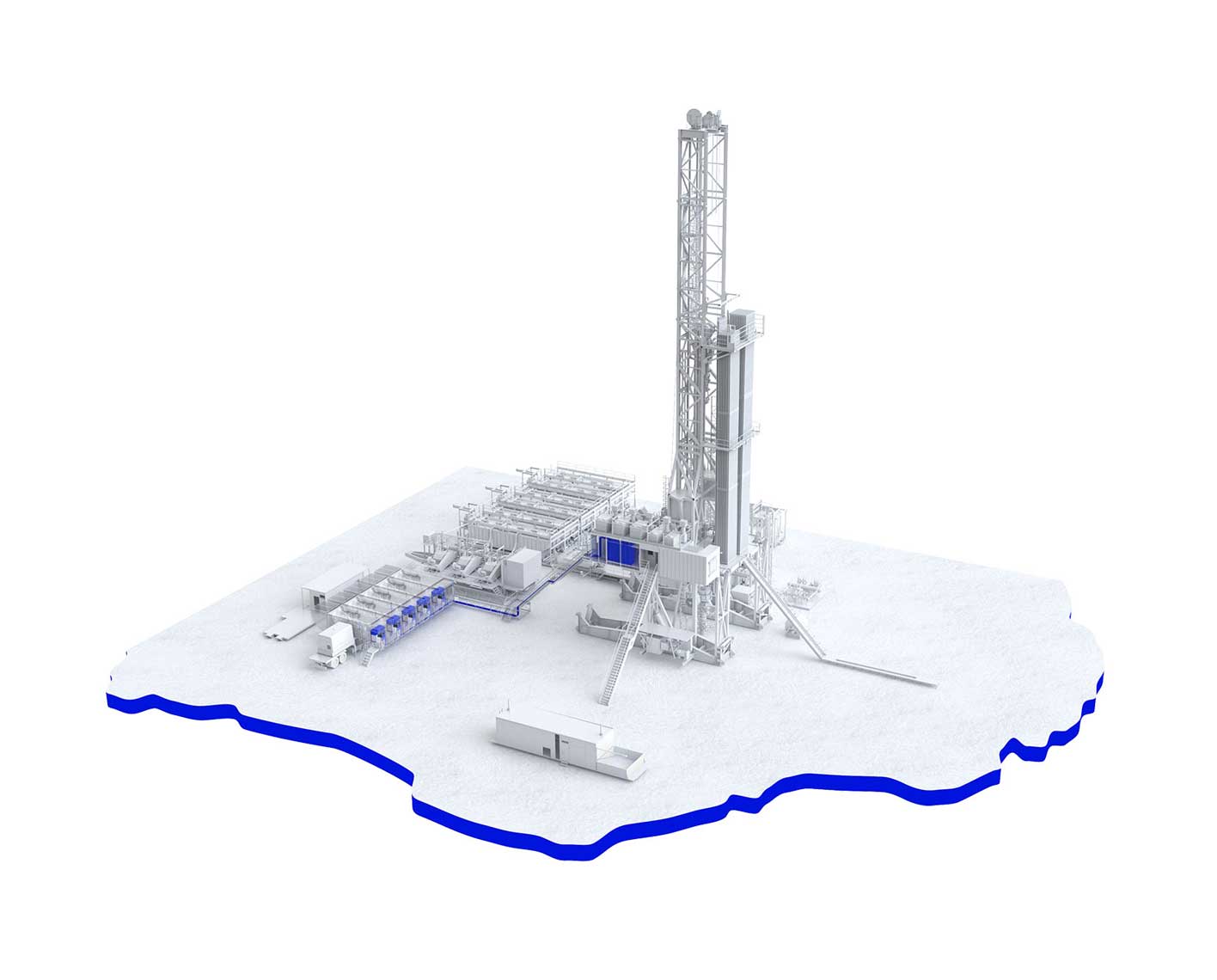HVAC System
100% fan redundancy
Custom design a system to to fit any DCR.

Aligns with United Nations Sustainable Development Goals 13 and 17*
Emissions reduction: Lowers CO2 emissions by 25% through improved power generator management**
Intelligent Power Management comprises solutions that can be tailored to your goals for fuel efficiency, emissions abatement, and engine life optimization. The conventional method of engine management is focused on high availability of rig power for drilling operations, where gensets are continuously running regardless of the rig activity. With Intelligent Power Management, you reduce the use of gensets at the wellsite without compromising well delivery.
For maximum emissions reduction, Intelligent Power Management has an advanced solution that represents a major leap in evolving rig power generation: the replacement of conventional generator sets with a hydrogen fuel cell system (H2FC). This mobile fuel cell system offers a zero-emissions power supply right at the wellsite for locations beyond the reach of a standard utility cord.
Intelligent Power Management empowers you to select from three solutions that best align with your sustainability objectives.
The core solution enables the rig with load-dependent start-stop (LDSS) software. This is accessible to the rig’s existing generator controls, minimizing the retrofit by keeping your standard equipment in place. LDSS continuously monitors rig power demand and sends automated commands to match the genset power supplied, optimizing the quantity of gensets running. This is accomplished without rig crew intervention.
The enhanced solution incorporates a battery energy storage system (BESS) along with a dynamic controller that coordinates all available power sources. The Intelligent Power Management controller strategically uses the battery as a rapid-response power supply, enabling the gensets to remain shut down for longer periods. Then, only essential gensets are used, ensuring they operate under ideal load conditions. This flexible approach ensures reliable rig power availability while significantly reducing overall fuel consumption.
Minimal retrofit required
Automated commands match power supplied without rig crew intervention
*The content of this publication has not been approved by the United Nations and does not reflect the views of the United Nations or its officials or Member States.
For more information, visit the UN Sustainability Goals website.
**Results may vary by well type, engine type, crew, etc.
The content of this publication has not been approved by the United Nations and does not reflect the views of the United Nations or its officials or Member States.